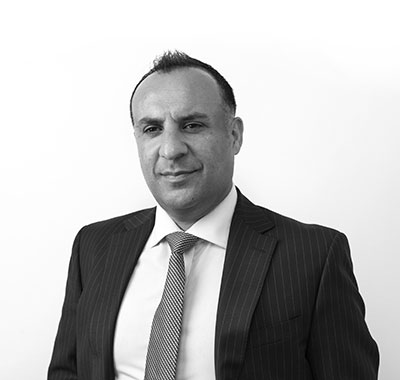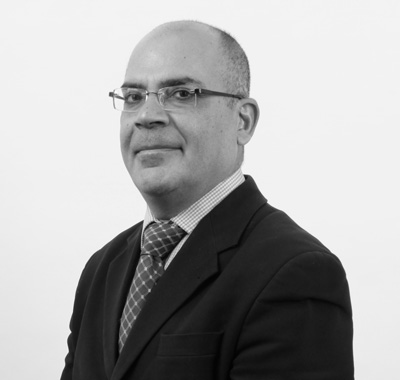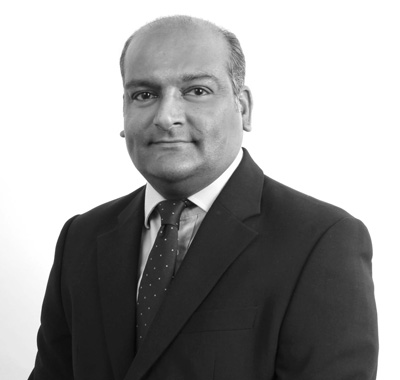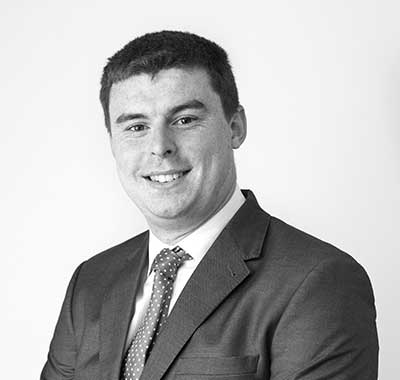Pre-charge Engagement
If you are suspected of committing a crime and have subsequently been interviewed under caution, the situation can be incredibly confusing and stressful. Worse still, if the police or CPS believe they have enough evidence for conviction, there will be few options available to you.
However, before conviction takes place, it may be possible to take part in pre-charge engagement. This process will allow you to communicate with investigators prior to any formal charges being pressed. If completed efficiently and effectively, pre-charge engagement could lead to a case being dropped altogether. We can offer this service on an enhanced private basis. Click here for fees.
For this to happen, you will need the advice and representation of an expert team of criminal defence solicitors with a proven track record of success and experience in this work.
Get in touch
Why choose JD Spicer Zeb?
- 1000s Cases Dropped
- 24/7 Emergency Phonelines
- 100s Years Combined Experience
 Read all Reviews
Read all Reviews
Recent Cases
There is limited recourse for you if you are falsely accused. Click a selection of the cases we have covered. The best thing you can do is to instruct an excellent solicitor from the outset.
At JD Spicer Zeb, our specialist criminal defence solicitors in London have previously worked on numerous high-profile cases throughout the UK and have established an excellent reputation for providing the highest standard of legal representation on a variety of cases.
When instructed, our team can provide carefully tailored pre-charge engagement support, advising you on whether it would be suitable for your circumstances and the steps that need to be taken for it to be of benefit to you.
Our substantial expertise and vast experience in the criminal justice system means that you can be confident your case is in the safest hands. We will be sure to provide clear advice in plain English, along with sympathetic personal support, which is designed to help you get through such a difficult time.
How can we help?
Common questions
We always work with the most experienced and best leading UK barristers, KCs (Kings Counsel). We cover all criminal cases 24/7 at the police station and court. Offices in London, Birmingham, and Manchester cover cases across England and Wales. We can offer Legal Aid and affordable Private fee agreements. We can see you the same day, including virtually. Our Senior Partners supervise all of our cases.
How quickly do you respond?
We respond quickly even during out of hours. We do not get our work by paying for online adverts but based on the fact that few criminal law firms can match our 45 years of experience. Most of our cases are still from word-of-mouth recommendations from satisfied clients. We are called daily by dissatisfied clients from firms with less experience than us. We respond very quickly to new enquiries. We know what clients seek and so we update clients rapidly.
Can you get cases dropped?
Yes, read about the recent cases we've helped our clients with here.
We always keep you updated and give straightforward advice. We will get cases dropped early where the case is weak or should not be prosecuted. We will be upfront with you about where you can benefit from a good result with an early guilty plea, such as a discount on your sentence. As we work on cases across all levels with clients from all walks of life, we are excellent at giving clear, spot-on advice. As an established firm, we can allocate a whole team to your case often at short notice to secure evidence to minimise the damage to you.
Have you won any awards?
OUR PROFESSIONAL BODY THE LAW SOCIETY AWARDED US IN OCTOBER 2020 WITH THE EXCELLENCE IN CLIENT SERVICE AWARD AND STATED -
"JD Spicer Zeb demonstrated a clear commitment to client service through their work with vulnerable and diverse individuals in what can be severely traumatic circumstances".
Do you offer free consultations?
Where it is possible, we aim to provide an initial consultation to you. If we can speak to you, we can if required inform you about –
- Whether we can take the case on and our relevant experience.
- Public and private funding benefits.
- Assistance in applying for legal aid where we are likely to accept instructions.
- An outline of options in police interview only. We will not advise you on which option to adopt.
- Providing our free written guide explaining the police station process.
- The gravity of routine and day-to-day offences you face.
- Consequences of not attending the court or police station.
- Consequences of interfering with any witnesses.
- Retaining any evidence in support of your case.
- If possible an outline of the elements of the offence that the police or CPS must prove.
- This consultation will normally be by telephone or email and will only be for as long as we deem necessary to establish if we can act for you. If we cannot usefully give you any advice in this manner then we will not continue with the consultation. We will not discuss the case in depth for you to be able to decide on your plea or any significant aspect of the case, as this cannot be undertaken informally.
- Referring you, if possible, to other firms for matters out of our specialism or if we cannot help.
Consultations do not apply to the following cases –
- If we do not intend to take the case on.
- Road Traffic cases, drink driving, drug driving, driving bans, speeding, no insurance, mobile phone use, points etc.
- In all cases where we do not have the capacity to take your case or the availability of suitably qualified staff to provide an initial free consultation. This is applicable in all cases but especially where a more senior lawyer is required because of your personal needs or the complexity of the case.
- Harassment/stalking/ coercive behaviour/malicious communications or road traffic cases and most sensitive cases. These cases are often too complicated to assess in short consultations.
- The locations concerned may be too distant to represent you adequately or it may not be cost-effective for you or us.
- The case is too complicated to assess or raises various charges or facts, complexity, or history to be considered informally or in a short consultation.
- In most Legal aid transfers where legal aid is granted to another firm except in very grave cases, we may assess the case and merits for a transfer.
- If your relationship has broken down with your existing solicitor or several solicitors.
- If you have been released under investigation and have already had a police station attendance.
- If you hold legal aid with another firm and seek a second opinion.
- If you are calling on behalf of the client as a friend or family member unless you have full authority and full facts.
- To businesses.
- Advising whether you were given good advice by your other solicitor.
- Whether to decide to plead guilty or not guilty.
- Whether you have an arguable defence in law or factually complicated defences.
- Any advice you have had after your first court appearance.
- Any advice on appeal on conviction or sentence.
- If we feel we are unable to communicate with you.
- If we are likely to be conflicted or breach our professional rules.
Our pre-charge engagement solicitors offer:
- 24/7 legal support in person and over the phone, 365 days a year
- Representation anywhere in England or Wales
- Accredited Police Station Representatives to support you during a police interview
- Clear, effective legal advice in any language (see our languages spoken)
So, if you have been interviewed under caution and are concerned about your current legal position and the prospect of conviction, please get in touch with our specialist pre-charge engagement solicitors as soon as possible to discuss your situation.
Speak to our pre-charge engagement lawyers in London now
For a free initial consultation on your legal position and the available options, please call 0207 624 7771.
For urgent advice at any time of day or night, please call our Emergency Number 07836 577 556.
You can also email: solicitors@jdspicer.co.uk or fill out our quick online enquiry form and we will get back to you quickly.
Why choose JD Spicer Zeb’s pre-charge engagement solicitors in London?
No matter what your circumstances are or what offence you are potentially being charged with, it is essential that you receive the right advice from our specialist pre-charge engagement solicitors at the earliest opportunity.
Whether the police have instigated pre-charge engagement, or it would be in your best interests to instigate it yourself, our dedicated solicitors will be ready to represent you during the following proceedings.
We will guide you through the process with clear straightforward advice, that helps you to clearly understand your situation, options, and the possible outcome of the case.
While doing so, we will also work proactively to maintain contact with investigating officers, establishing the full case against you so that we can build the strongest possible defence case.
Our solicitors will liaise with prosecuting authorities on your behalf, with the primary aim being to bring your case to an early conclusion, saving you the unnecessary stress, trauma and cost of court proceedings.
During this stage, our team can highlight evidence that is relevant to your defence to the CPS, providing access to various lines of enquiry and evidence that serve to support your case. Where required, we can also make submissions in respect of expert evidence that will be of probative value to the case.
As a testament to our strong commitment to client care and focus, much of our work comes from referrals and recommendations from clients who have been satisfied with our legal services.
Common questions about pre-charge engagement
What is pre-charge engagement?
Pre-charge engagement will refer to any voluntary engagement between parties that are involved in a criminal investigation, following the first interview under caution and before a suspect is formally charged. Pre-charge engagement will typically involve:
- Providing a suspect with the opportunity to comment on further lines of enquiry
- Establishing whether a suspect is capable of identifying other lines of enquiry
- Asking a suspect if they can provide access to digital material that is relevant to the allegations
- Discussing ways of overcoming barriers to obtaining evidence
- Agreeing to key word searches of digital material
- Obtaining content to access medical records
- The suspect identifying and providing contact details of any potential witnesses
- Clarifying whether any expert or forensic evidence is agreed and, if not, whether the suspect’s representatives intend to instruct their own expert
Notably, Annex B of the Attorney General’s Guidelines on Disclosure outlines that pre-charge engagement may ‘impact decisions as to charge’. This means that any actions taken during pre-charge engagement could be sufficient for a case to be dropped and for a defendant to avoid charges.
When would pre-charge engagement take place?
Pre-charge engagement will usually take place whenever it is agreed between the relevant parties that it will assist the investigation. It must be emphasised that the importance of seeking legal counsel prior to pre-charge engagement is critical and sufficient time will usually be provided to a defendant to obtain legal advice.
It is not appropriate for every case, however. It should not be used as a replacement for a further interview under caution, nor should it be used in circumstances where the investigator and prosecutor seek to rely on the contents of answers for evidence at trial.
If a no comment interview has taken place, this will not preclude the possibility of pre-charge engagement taking place.
What are the benefits to pre-charge engagement?
There are a number of potential benefits to pre-charge engagement, many of which are detailed in Annex B.
These benefits include:
- A suspect who maintains their innocence is aided by the earlier identification of lines of enquiry. These lines of enquiry may point away from the suspect or towards another suspect.
- It can help the prosecutor’s final charging decision – it can avoid a case being charged that would otherwise be stopped later, saving time.
- Issues and disputes can be narrowed down so that unnecessary enquiries can be avoided and the case can be efficiently managed
- Early resolution of a case reduces anxiety for suspects and complainants.
- Costs are reduced.
Who can initiate pre-charge engagement?
Depending on the circumstances, it may be appropriate for an investigator, the prosecutor, a suspect’s representative or an unrepresented suspect to initiate pre-charge engagement.
How does pre-charge engagement work?
Initial dialogue between prosecutor and investigator
When referring a case to a prosecutor, the investigator should inform whether any pre-charge engagement has already taken place or whether it would benefit a case.
Prosecutors and investigators are required to be alert to the use of pre-charge engagement as a means to delay an investigation. For example, pre-charge engagement cannot be used to provide a suspect with the opportunity to make ‘unfounded’ allegations against a complainant.
Information on pre-charge engagement
Before or after the interview, the investigator should provide information on pre-charge engagement to the suspect and/or their representative. This can be explained orally or in writing and should include an explanation of the aims and benefits of the process, as well as relevant time scales and a police point of contact.
Conducting pre-charge engagement
Pre-charge engagement discussions can take place in a face-to-face setting or via correspondence. It does not need to always be a formal process and could be initiated after an interview.
Disclosure during pre-charge engagement
The disclosure of any unused material forms part of the pre-charge engagement process. This is done to ensure that the discussions are considered fair and a suspect is aware of the strength of the prosecution case.
Recording pre-charge engagement discussions
A full written, signed record of the pre-charge engagement discussions should be made. Prosecutors and/or investigators are also required to record key actions during the process, and a record needs to be made of all information provided by a suspect’s representative.
The prosecutor may be required to disclose information provided by a suspect’s representatives to another party. Records should be made of all information and material provided to the suspect’s representative, and the prosecutor and investigator need to ensure that records of the pre-charge engagement are provided to each other.
Contact our pre-charge engagement solicitors today
For urgent specialist advice, immediate representation, or to speak to us confidentially about pre-charge engagement, please do not hesitate to get in touch with our specialist criminal defence solicitors.
You can contact a member of our dedicated team of criminal defence lawyers in London, Birmingham, and Manchester by telephone on:
- City of London: 0207 624 7771 - our senior Solicitors and Partners can meet by appointment in the City.
- Brent & Camden London Office: 0207 624 7771
- Manchester Office: 0161 835 1638
- Birmingham Office: 0121 614 3333
Or email: solicitors@jdspicer.co.uk
Alternatively, you can fill out our quick online enquiry form, and we will get back to you as soon as possible.
24/7 criminal defence lawyers & police station representatives
Please get in touch for a free initial consultation with one of our expert criminal defence solicitors, as well as immediate representation and advice related to pre-charge engagement.
We are available to represent clients all over England and Wales at any time, so please contact our Emergency Number 07836 577 556.
How can we help?
Useful Information
- How can I get the CPS to drop the charges against me?
- How can I get the police to drop charges against me?
- How can I get the police to caution me?
- Police Stop and Search UK
- Pre-charge bail - What You Need to Know
- Read our Police Station Advice Guide
- Recovering Your Property From The Police
- Released Under Investigation - What You Need to Know
- Types of Evidence used in Law
- Voluntary Police Interview - What You Need to Know
- What is a 'No further action' letter?
- What to expect in Police Custody
- Why Choose a Private Solicitor for a Magistrates' or Crown Court Case?
-
- Umar Zeb
- Senior Partner - Head of Private Client Crime
-
- Lisa Nicol
- Managing Partner - Head of Crime & Serious Cases
-
- James O'Donnell
- Partner Crime - Serious Cases
-
- Sanjay Cholera
- Partner Crime Advocacy
-
- Peter Mulhearn
- Consultant Crime Solicitor
-
- Danny Parkash
- Crime Solicitor
-
- Mimma Sabato
- Barrister
-
- Richard Souper
- Consultant Crime Solicitor
-
- Jonathan Lynn
- Solicitor
-
- Samuel Oduntan
- Solicitor
-
- Barry Linnane
- Crime and Extradition Solicitor
-
- Stuart Lloyd
- Solicitor
-
- Robert Wong
- Crime and Extradition Solicitor
-
- Maeve Carroll
- Paralegal
-
- Rebecca Forbes
- Paralegal
-
- Sachelle Gilbert
- Paralegal













